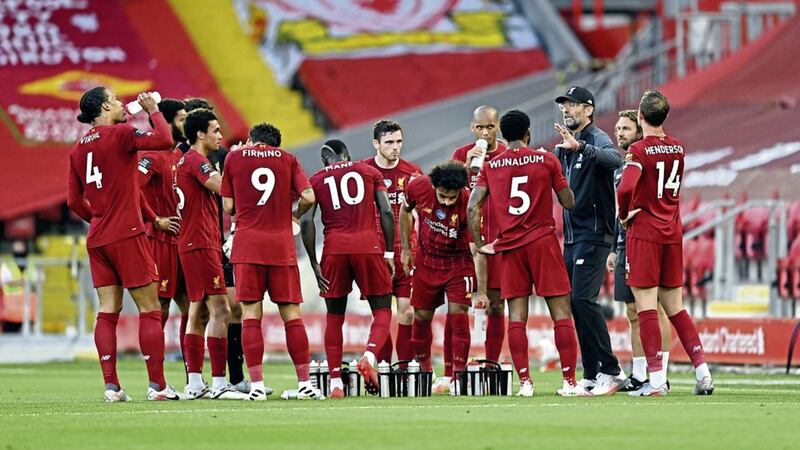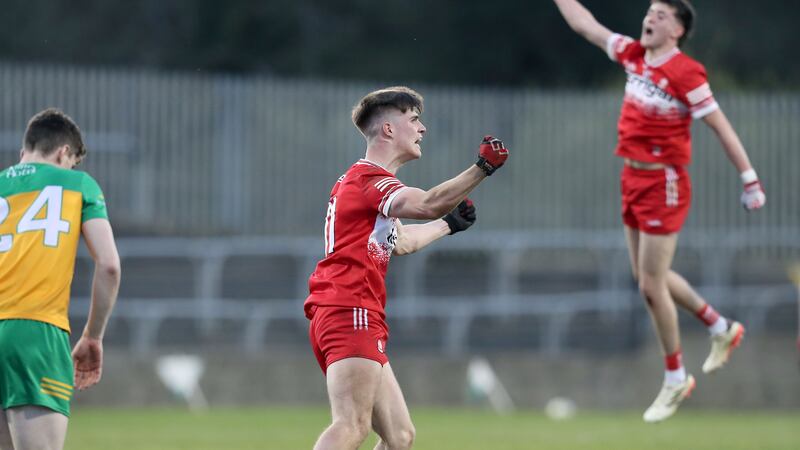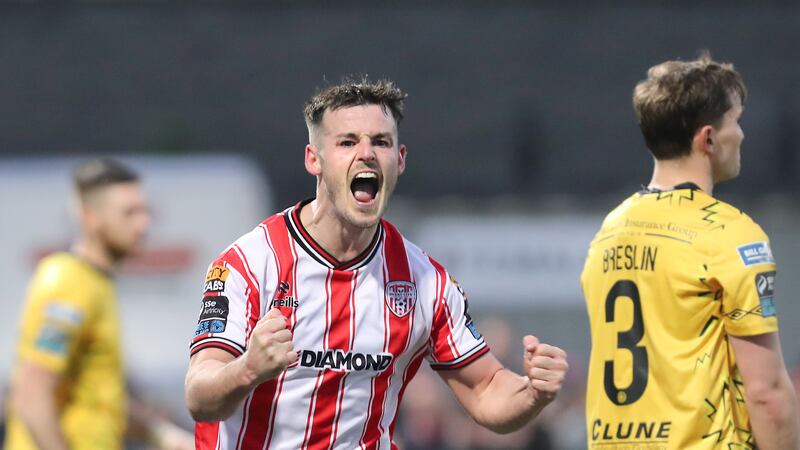I COULDN'T wait to write this week’s article. If you are a bitter Manchester United supporter please look away now.
Two years ago, Liverpool were 25 points behind Manchester City, with all their wealth, and it seemed like that particular City team could carve out levels of consistency I had never seen before in sport.
Then, for once, a team I have loved and supported my entire life, Liverpool turned things on their head.
As a Liverpool fan, we should enjoy our day in the sun. After all, 30 years ago, I was eight years old.
My hero at that time was John Barnes. I had his number 10 stitched onto my counterfeit Liverpool ‘Crown Paints’ jersey.
It’s ironic, given the Black Lives Matter movement, but as a child, the colour of John Barnes’s skin never even entered my mind as an issue.
I believe that as we age, society’s approach and treatment of ethnic minorities has a profound effect on influencing people’s thoughts and behaviour, even if this is subconscious.
It is only now you realise what Barnes had to put up with. In those days, given that we had a big family and while my mum and dad were both school teachers, there was not a lot of money in our house for ‘real’ Liverpool tops.
After all, in 1990, four Liverpool jerseys (excluding my younger sister) had to be bought – what you do for one child, you had to do for all.
It mattered not that the jerseys were replicas – we knew who we loved.
Sport was front and centre in our house. GAA, soccer and basketball.
My brothers and I played on the same teams locally in all three codes. The one car we had was never off the road.
In fact, we played rounders, tennis, anything really. There was no such thing as ‘burnout’ in those days, you lived outside from dawn until dusk.
It was refreshing to see during the lockdown we have experienced, children returning to the playing fields and contenting themselves outdoors with something as simple as a football.
I stayed up and watched Sky Sports last Thursday night and into Friday morning and to be honest, it was a bit emotional.
My mum loved us congregating to watch Liverpool at home over the years. She would laugh at us while we experienced the rollercoaster of emotions that came with supporting the Reds and shouting at the telly.
Maybe that had something to do with it, but the emotional element of it took me by surprise.
You could be cynical about it and conclude that the Liverpool superstars and Jurgen Klopp couldn’t care less about the working man. But, to be honest, I don’t see it like that.
They have talent, have worked hard and while some of the money involved and lack of loyalty can make you sick sometimes, I don’t begrudge anyone getting paid for the talent, just like an actor or singer.
For me, being a fan and supporter and having that connection to something provides so much more to improving the fabric of society and a community than it takes away.
You see, what binds us together, as human beings, is our ability to connect on a social level.
For some, this is purely within a family unit and sport doesn’t come into it.
For others, it is family and the GAA.
Many cannot identify with other interests, like cycling and soccer.
As a fan, supporting a team, can mean so much, being able to identify oneself in your association to something (like a soccer team) it should never be underestimated how important it is to people from a mental health perspective.
You may have absolutely nothing in common with anyone on a personal level, however, still be able to connect with them if you support the same team.
And that’s the beauty of sport.
IT was interesting to hear Klopp talk about the achievement and how he and his backroom team recruited the players to fit the ethos of what he considered was required to win trophies, especially the league.
Interestingly, he talked about the history of Liverpool Football Club, yet wanted, not to dwell on its past glories or have it weigh heavily on the squad, like so many other failed squads since 1990, but to recreate his ‘own’ Liverpool, with its high octane, ‘heavy metal’ football.
Klopp certainly achieved this – he had the players buy into what he wanted and got rid of those who he considered surplus to requirements.
In my opinion, given the multi-millionaire status of these players nowadays, what Klopp has done is even more extraordinary.
Even very mediocre players earn extraordinary amounts in soccer, so it takes a manager with huge charisma, energy and personality to bring players and a team with him.
It’s not as much about the salary for players now, it is about being loved, valued, respected and having trust and honesty. It seems this way in the Liverpool dressing room.
And, I believe, Klopp is an excellent template in management.
No egos, he is not afraid to be normal with his emotions whether it’s with the press or his players.
You may ask yourself how I can admire someone I have never met,
especially someone who is paid extraordinarily well.
Maybe it is because I know a dressing room can be a very cut-throat and fickle place.
I have seen and experienced far too many managers with egos and arrogance over the years. I never understand how they believe it can work.
Jim McGuinness had a similar effect on Donegal, however I would caveat this by saying I had no inside experience of his ego, so I can’t possibly comment on this aspect. But he got players to buy in.
Pat Gilroy in Dublin, a man I admire, took more time to get to where he wanted, but eventually he did it and started off the Dublin domination we have now witnessed in the last 10 years.
Management is a brutally unforgiving and very fine balancing act that few really find meaningful success with.
Some believe the manager role is leadership. However, leadership and management sometimes get confused and interpreted as the same thing.
Again, Roy Keane was a brilliant player and leader, but as a manager lacked self-awareness, empathy and patience to ever make it in that role.
In both my own professional and sporting career, I have witnessed good and bad leadership and similarly the same can be said of management.
In a lot of ways, I think if you are a genuine person and you carry yourself with similar intentions, I believe that you can lead people to success, whether that is on or off the field.
The one thing all supporters and football fans could agree on is Klopp’s affable and genuine nature.
His drive, his vision has made him what he is today but the fundamentals, the foundations lie in his genuine approach to people and life.
You cannot fake this, trust me, I have seen plenty try.
It’s nice to be associated with the club, detached or not as you may think it is, as an LFC supporter ‘You’ll never walk alone’.








